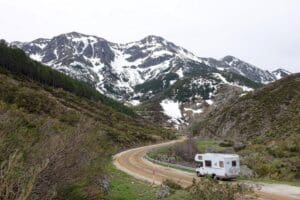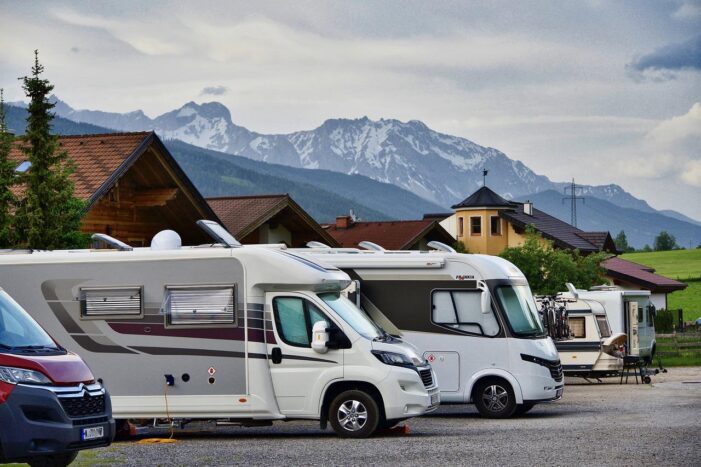Camping might sound exciting in concept, but the excitement turns into challenges when it comes to its reality. The issue is that people are unaware of what to consider, which goods are necessary (and unnecessary), or how transportable facilities should be engaged and preserved. Therefore, it is advisable to plan ahead to camp like a pro.
Camping is all about having fun and trying new things throughout the nation. And, if you’ve never done it before, RV camping is among the best ways to develop that adventurous spirit. To keep things simple, employing a Recreational Vehicle can be the best option for camping. The perks of using an RV are undeniable.
Whether a first-time RV user or a seasoned veteran, vacation planning can be complex. After all, you’ll be traveling in an apartment on the go! Today, we’ll go over a few ideas and tactics that can help you camp like a pro in an RV:
Bring the appropriate camping pieces of equipment with you.
What is the most distinguishing factor between a typical road trip and RV travel? If you are trying to figure out what to bring, consider this: if you’re traveling in an apartment on rollers, you won’t need a sleeping bag. However, make sure you have enough sheets and towels!
While the most necessities, such as clothing, shoes, toiletries, and adventurous gear, stay the same, RVing requires you to add household essentials, including bedding and cooking, to your vacation packing list. This way, you can fully utilize the onboard kitchen and perhaps other amenities, so you should upgrade from a pack-in-pack-out tent set up in the first place!
Several analytical, RV-specific attachments are also essential for motorhomes and camper vans. If you’re planning to be on the highway for an extended period, you’ll need a sewage hose to empty your RV’s storage tanks. You’ll also need tools and materials to floor your camper once you get to your camping site if you’re traveling in a trailer.
Put some energy-boosting products in your backpack.
You would not want to feel tired throughout your journey in an RV. You might want to carry some THC Gummies to keep feeling energetic and creative. Delta 10 is a cannabinoid synthesized from cannabis, just like CBD.
Delta 10 is exceedingly difficult to obtain, unlike CBD. That’s why it’s usually manufactured in labs. This cannabinoid works the same way other THC-based chemicals do with the body’s endocannabinoid system. It is slightly more psychotropic than CBD. Delta 10 isn’t as good for relaxing as it is for stimulating. This chemical might be excellent for boosting creativity, efficiency, and attentiveness.
Allow for unpredictability in your schedule to avoid stress.
The issue with outdoor activities is that the whole goal is to get away from your regular life, which involves the mundane responsibilities of rearranging timetables and keeping track of to-do lists.
You won’t miss anything if you reserve every last minute of your camping trip. However, by the moment your journey is through, you’ll most likely be fatigued and entirely over it, which is the complete antithesis of the effect a holiday should have.
As a result, when organizing your RV journey, we advise caution. It’s always good to know where you’re heading and what fun you can have there, but don’t ignore the allure of a spur-of-the-moment, just-pick-a-direction-and-go scenic drive.
Because you always know you’ll have a shelter over your head and a bedroom to curl up in while you’re in an RV, it’s not as important to plan out every last touch. That offers you the flexibility to take that intriguing look back lane or halt at an en-route location on the spur of the moment.
Select the Most Appropriate RV Campsites for Your Requirements
Your RV camping requirements will vary depending on the RV you choose. While most RV parks provide electric hookups, you may require other campground amenities. During your time RVing, you will learn to plan. Since you will be used to arranging tent campsites days in advance or even as you arrive at a park, RVing might throw you for a loop. When it comes to RV camping, it’s crucial to plan to ensure that you get the right campground for your vehicle, especially if you’re traveling during peak season or require connections.
Learn about the regulations and etiquette of RV camping.
Tent camping is not the same as RV camping. Following RV park rules and displaying RV etiquette will enable you to have a more enjoyable stay. And possibly even make some new friends! If tents are permitted on a campsite, they are typically located separately.
After analyzing several RV trips, we’ve learned the following RV campsite tips, constraints, and etiquette:
- Many RV parks only allow back-ins. If you don’t like backing into your campsite, seek parks that include “pull-through” sites (though they aren’t usually guaranteed).
- Most campsites have a sound curfew, which implies you must switch off your engine between 10 p.m. and 7 a.m. (varies). Turning off any flashing lights is also polite.
- It’s not a pleasant thought to walk through other people’s campgrounds.
- If there are a lot of open campgrounds, give your RV neighbor some room.
- Follow the house rules, parking requirements, and curfews if you host visitors.
- After you’ve used the dumping station, spray it down.
- Make sure you don’t leave any rubbish behind!
Educate yourself on how to RV safely.
While RV camping can provide comfort and style at your campground, those very same amenities must be safely kept whenever your vehicle is on the move. Make the most of your storage options, supplies, and attachments to make setup, dismantling, and driving as safe and straightforward as feasible.

Here are some helpful hints for your RV camping trip:
- Examine your RV’s health, tires, and fuel injection system regularly.
- When traveling, make sure nothing is loose.
- Always be aware of bridge clearing heights and weight requirements if you have a tall RV.
- You should travel slower and add time to your estimated arrival time due to the sheer size of your car.
- Always lock your RV tires (level, chocks, and parking brake) when trying to park.
Bottom Line
It’s usually a good idea to avoid any uncomfortable contact, no matter how compelling the story. Wild coyotes, bears, and boars can be found practically anywhere, yet they prefer specific areas and avoid others. Use Google to look for any harmful wild animals in the area you plan to camp.
In addition, it’s a good idea to keep an eye out for delicious-looking toxic plants. Compasses aren’t ideal, despite the reality that they’re often dependable. If you become lost, an accurate map of the region can help you get back to the nature trail, but a Gps device is even more valuable. Certain areas, however, have poor signal reception, which is required for GPS systems to function in the first step.
Also Read: Top 50 Richest Persons in Korea [2024]
